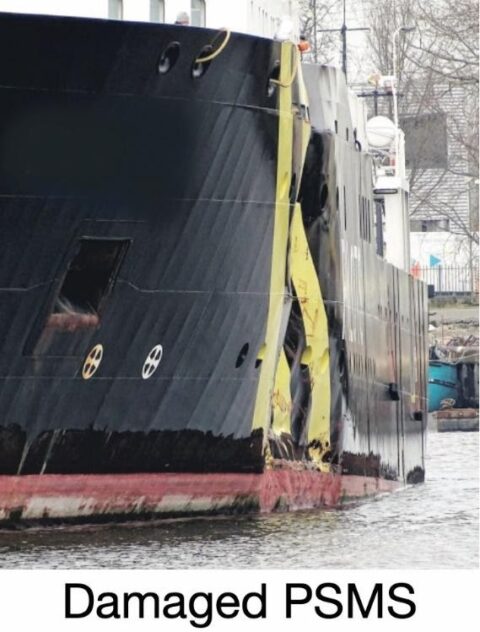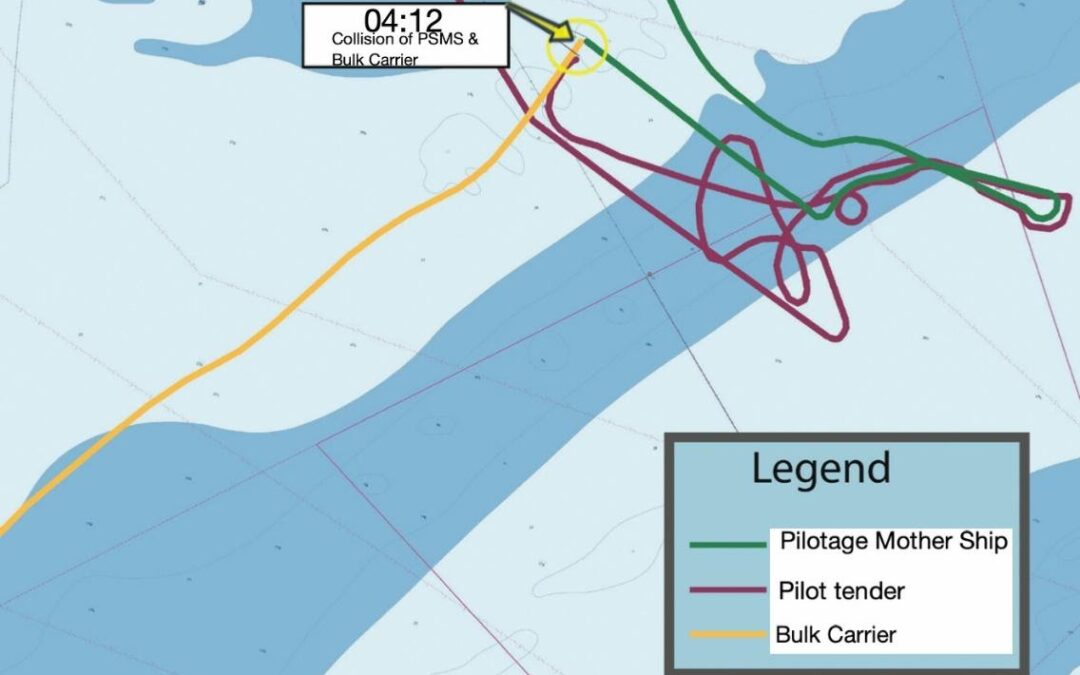Assuming another vessel stays clear of yours is not best practice and can have serious consequences. The Nautical Institute describes such a situation in its latest Mars Report in which a bulk carrier collided with a pilot vessel.
The Nautical Institute gathers reports of maritime accidents and near-misses. It then publishes these so-called Mars Reports (anonymously) to prevent other accidents from happening. A summary of this incident:
In the early morning darkness a bulk carrier was outbound under pilotage. As the vessel approached the pilot disembarkation point the pilot tender made an approach to the bulk carrier to disembark the pilot. The operator of the pilot tender requested the bridge team of the bulk carrier to set a heading of 030° and to maintain a speed of 10 knots to make a lee. The bridge team of the bulk carrier carried out the request.
In the meantime, the captain of the pilot station mother ship (PSMS), which serves as a home base for on-duty pilots and pilot tender crew, but does not deliver pilots to vessels, wanted to reposition the vessel. He visually spotted the outbound bulk carrier and plotted a course to cross its bow. At 04.00, the mother ship was on a course of 300° at a speed of 8 knots. It was showing pilot lights and therefore recognisable as a pilot vessel. The captain then focused his attention on some administrative tasks. At that point, the bulk carrier was sailing on a heading of 045°at a speed of 10 knots.

At 04.07, the pilot left the bridge of the bulk carrier and headed to the deck to disembark. The pilot disembarked on to the pilot tender at 04.11and the pilot tender disengaged from the larger vessel, which was now turning to port, coming to 350° as per pilot’s advice.
At this time, the mother ship continued on autopilot. The captain was still preoccupied with administrative tasks. At 04.12, the mother ship collided with the starboard bow of the bulk carrier. Several crew members suffered minor injuries; there were no injuries aboard the bulk carrier.
Investigation findings
The official investigation mentioned that both the pilot and the crew of the bulk carrier assumed that the mother ship was involved in the pilotage operation. They therefore assumed, somewhat justifiably, that it would not hinder their movements.
Advice from The Nautical Institute
- Darkness changes everything! It is hard to imagine this accident happening in daylight and good visibility. When in darkness, re-double your attention.
- Being preoccupied with other tasks instead of navigating your vessel changes everything. Put distractions and other tasks away when navigating your ship.
- Making assumptions about the movements of other vessels, even in apparently clear-cut circumstances, can have negative consequences. In this case, the bulk carrier’s crew and pilot assumed the PSMS would stay clear, but at no time did they confirm this with the PSMS via VHF communication.
Mars Reports
This accident was covered in the Mars Reports, originally published as Mars 202129, that are part of Report Number 344. A selection of this Report will also be published in SWZ|Maritime’s July-August 2021 issue. The Nautical Institute compiles these reports to help prevent maritime accidents. That is why they are also published on SWZ|Maritime’s website.
More reports are needed to keep the scheme interesting and informative. All reports are read only by the Mars coordinator and are treated in the strictest confidence. To submit a report, please use the Mars report form.








